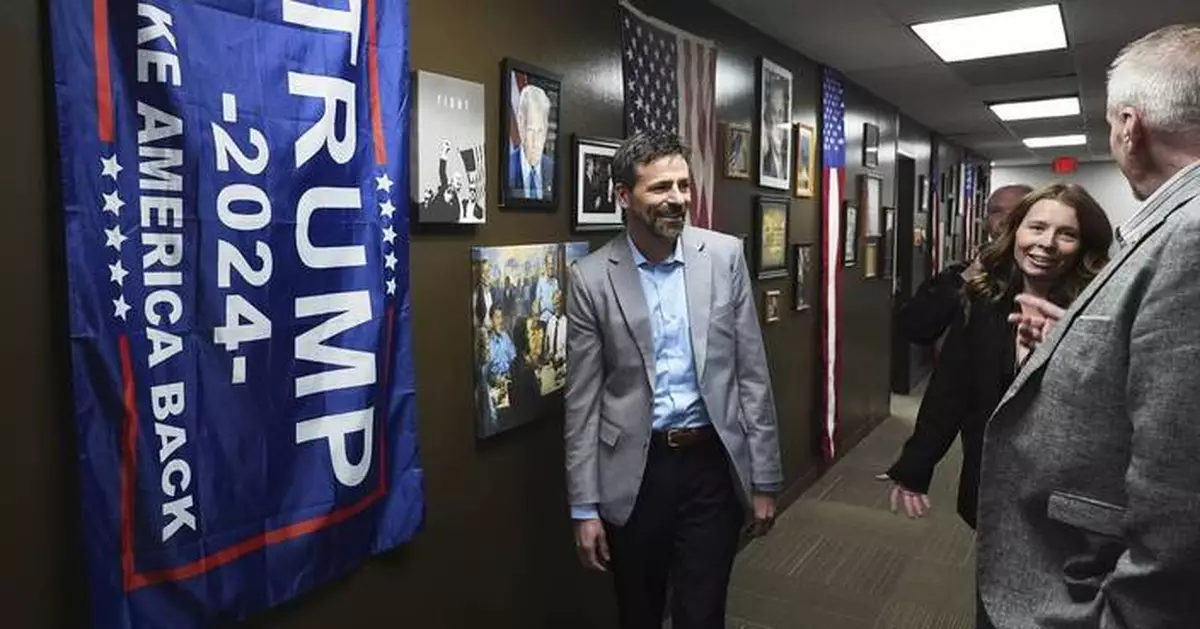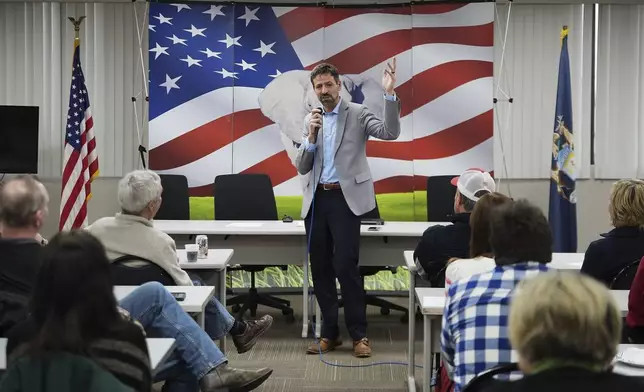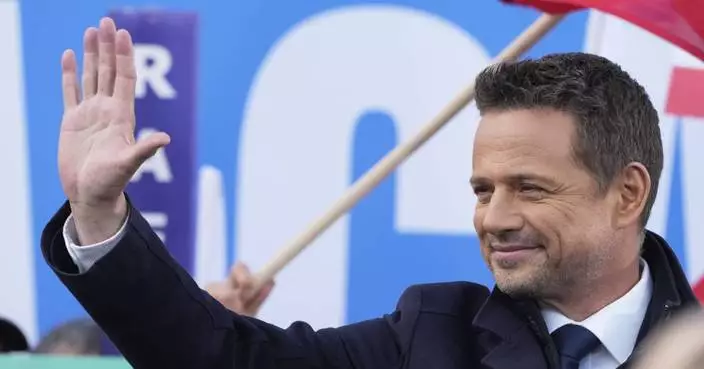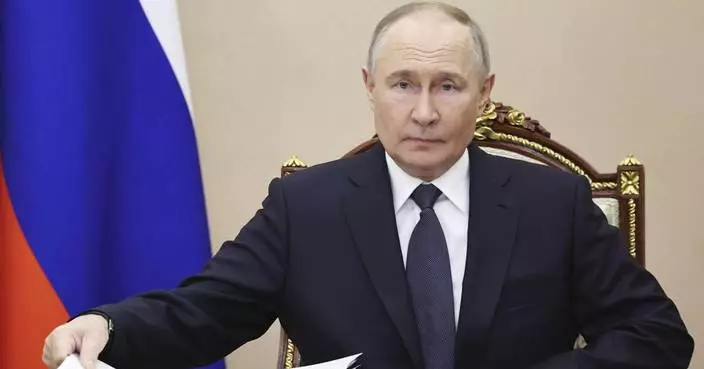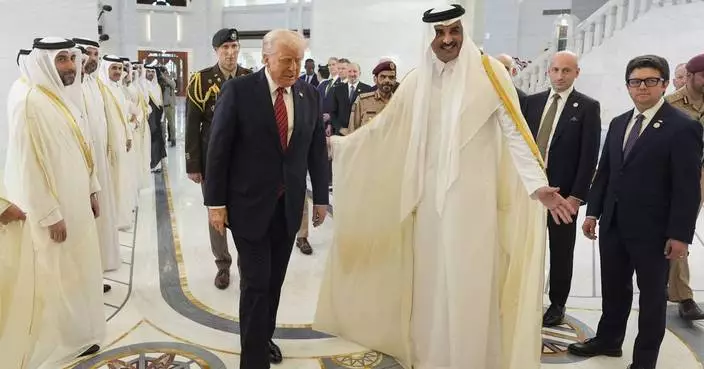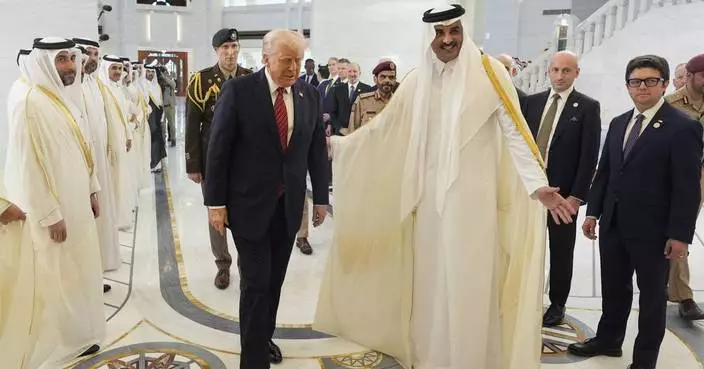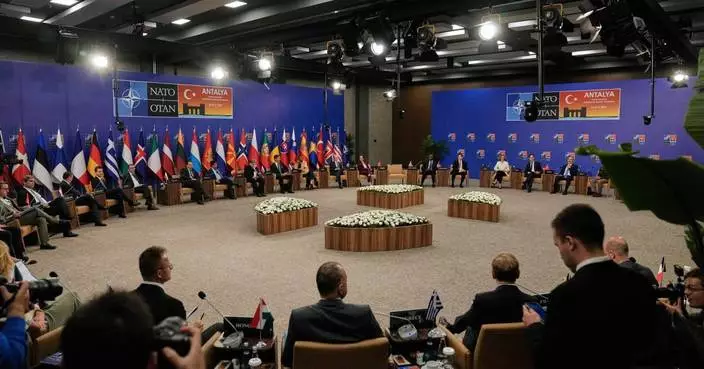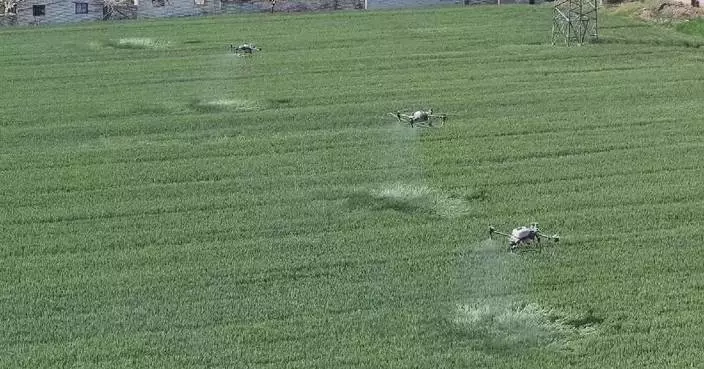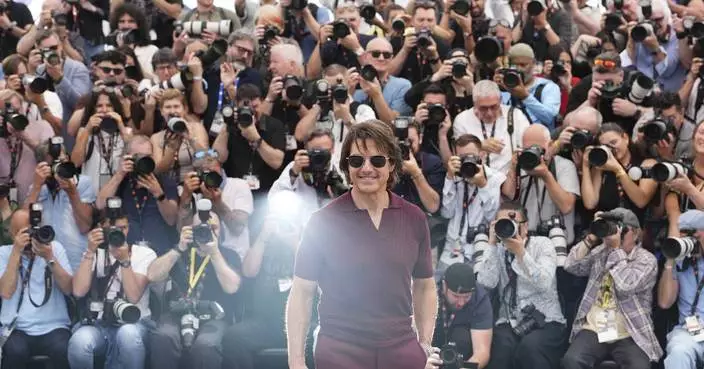JACKSON, Mich. (AP) — Those who rioted, assaulted police officers or broke into congressional offices during the riot at the U.S. Capitol on Jan. 6, 2021 are now being received as honored guest speakers at local Republican events around the country.
Since President Donald Trump pardoned about 1,500 rioters on his first day in office, some of those involved in the attack are getting a platform to tell their version of events and are drawing praise in some conservative circles as heroes and martyrs.
Click to Gallery
Ryan Kelley, center, speaks with attendees after his talk at the Jackson County Republican headquarters, Thursday, April 10, 2025, in Jackson, Mich. (AP Photo/Paul Sancya)
Ryan Kelley, center, poses for a photo after his talk at the Jackson County Republican headquarters, Thursday, April 10, 2025, in Jackson, Mich. (AP Photo/Paul Sancya)
Ryan Kelley, right, hugs William "Hank" Choate during his talk at the Jackson County Republican headquarters Thursday, April 10, 2025, in Jackson, Mich. (AP Photo/Paul Sancya)
Ryan Kelley speaks at the Jackson County Republican headquarters, Thursday, April 10, 2025, in Jackson, Mich. (AP Photo/Paul Sancya)
Ryan Kelley speaks at the Jackson County Republican headquarters Thursday, April 10, 2025, in Jackson, Mich. (AP Photo/Paul Sancya)
Ryan Kelley speaks at the Jackson County Republican headquarters, Thursday, April 10, 2025, in Jackson, Mich. (AP Photo/Paul Sancya)
Ryan Kelley, right, speaks at the Jackson County Republican headquarters, Thursday, April 10, 2025, in Jackson, Mich. (AP Photo/Paul Sancya)
Ryan Kelley, left, talks with William "Hank" Choate before speaking at the Jackson County Republican headquarters Thursday, April 10, 2025, in Jackson, Mich. (AP Photo/Paul Sancya)
A small cutout of Ryan Kelley sits on the registration table before his talk at the Jackson County Republican headquarters, Thursday, April 10, 2025, in Jackson, Mich. (AP Photo/Paul Sancya)
Ryan Kelley, left, arrives before his talk at the Jackson County Republican headquarters, Thursday, April 10, 2025, in Jackson, Mich. (AP Photo/Paul Sancya)
Some are considering runs for office, recognizing that at least among a certain segment of the pro-Trump base, they are seen not as criminals, but as patriots.
Ryan Kelley thought he had a good shot at becoming Michigan’s governor in 2022. That is, until he was charged with misdemeanors for participating in the riot. His campaign sputtered and he finished fourth out of five candidates in the Republican primary.
Three years later, Kelley says people ask him all the time to run for governor again. In today’s America, his two-month prison sentence for the Capitol riots isn't the obstacle to public life it may once have been.
At a recent county Republican committee event in Jackson, Michigan, the 43-year-old commercial real estate developer was met with hugs and handshakes. Dozens of attendees hollered and clapped when he introduced himself as “your favorite J6er.” They gasped and shook their heads as Kelley recalled how his young son thought he was dead while he was in federal prison. They urged him to run for governor in 2026, something he said he is debating.
“I’ve done much worse and did no jail time,” said 58-year-old Todd Gillman, a woodworker and Republican chairman for the local congressional district. “Thank God people like Ryan Kelley are not intimidated by the lawfare that was used against them.”
Kelley, who did not commit violence or enter the Capitol on Jan. 6, pleaded guilty to a misdemeanor trespassing charge. He maintains the judge who sentenced him made the decision based on the claims Kelley made about Jan. 6 and the 2020 election during his 2022 gubernatorial campaign — and not his actions at the Capitol.
By The Associated Press' count, at least two dozen local Republican groups nationwide in recent months have invited Jan. 6 rioters to speak at regular meetings or special fundraisers.
They include people who only trespassed, but also rioters who were convicted and pardoned for more serious crimes, such as carrying a firearm on Capitol grounds or violently attacking law enforcement.
The Western Wake Republican Club in North Carolina in March featured remarks from James Grant, a pardoned rioter who was among the first to assault police officers and breach a security perimeter during the attack.
A Republican women’s club in Lawrence County, Tennessee, earlier this month hosted an event for Ronald Colton McAbee. He was employed as a sheriff’s deputy in Tennessee when he went to the Capitol, dragging an officer away from a police line and punching another who tried to stop him.
Some of the local GOP groups welcoming Jan. 6 rioters have faced pushback from their communities, prompting them to relocate or even cancel scheduled events. One such event in California faced so much public backlash that three potential venues canceled, according to TV station KSBW. It was held at a fourth, with protesters outside.
It makes sense that Republicans are featuring Jan. 6 rioters, said Matt Dallek, a historian at George Washington University who studies the conservative movement.
“Those who are pardoned can testify, like no one else can, to the horrific power of the federal government to destroy their lives,” Dallek said. “It’s a potent rallying cry, and also probably a potent fundraising tool.”
But there also is a danger to elevating them, he said. Many of those pardoned used violence to stop the peaceful transfer of power, and juries determined their actions to be criminal.
“It is, I think, a mainstreaming, a growing acceptance on the right of political violence, as long as it’s done in the service of Trump and his ongoing election lie,” Dallek said.
Jake Lang, who was charged with assaulting an officer, civil disorder and other crimes before he was pardoned, recently announced he is running for Secretary of State Marco Rubio’s vacant U.S. Senate seat in Florida.
Enrique Tarrio, the former Proud Boys leader who was sentenced to 22 years in prison before his full pardon, said in an interview with Newsmax that he will take a “serious look at running for office” in 2026 or 2028 and believes his “future is in politics.”
In Texas, pardoned rioter Ryan Nichols announced a run for Congress but withdrew days later.
Kelley said he is mulling a 2026 campaign for governor, but is not sure he can commit his young family to the grind of the campaign.
Still, he recognizes that Trump’s pardons have opened a window of opportunity.
“Now is kind of the time that I could catapult with that, right?” he said in an interview. “We get a lot of hate, but I’m also going to get a lot of support.”
The Associated Press receives support from several private foundations to enhance its explanatory coverage of elections and democracy. See more about the AP’s democracy initiative here. The AP is solely responsible for all content.
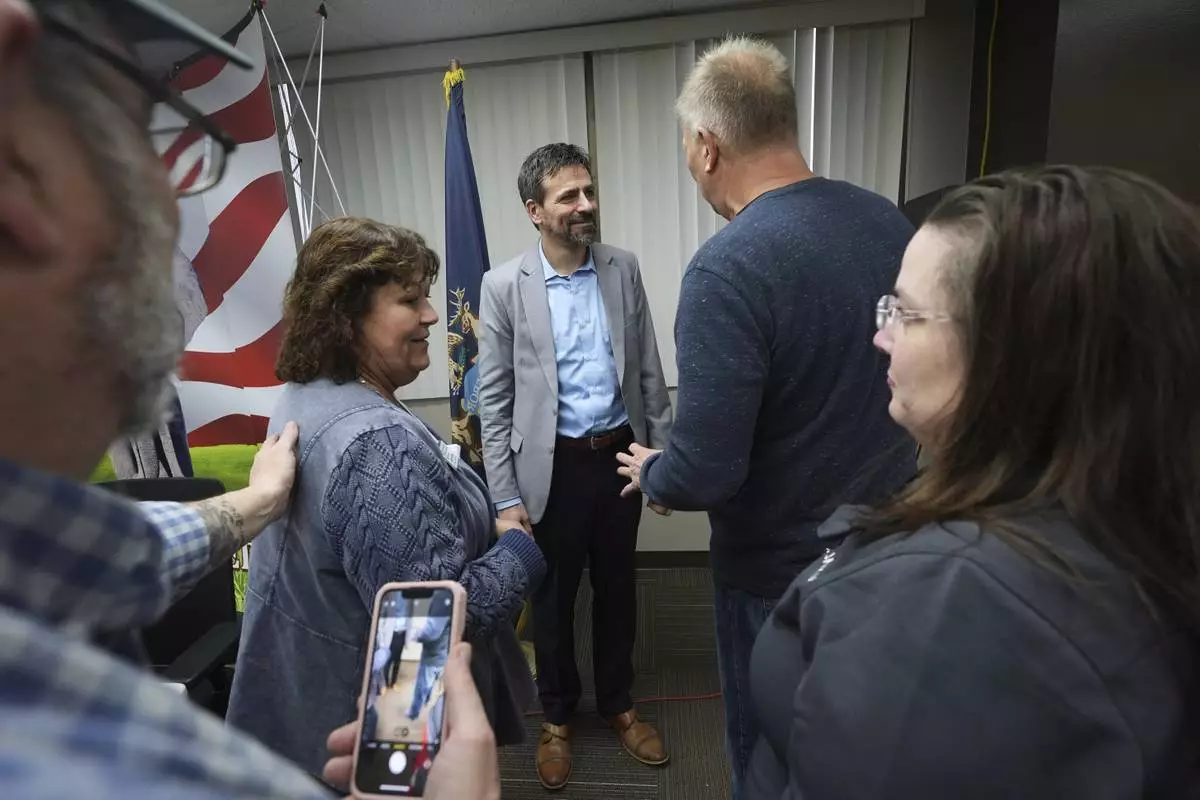
Ryan Kelley, center, speaks with attendees after his talk at the Jackson County Republican headquarters, Thursday, April 10, 2025, in Jackson, Mich. (AP Photo/Paul Sancya)
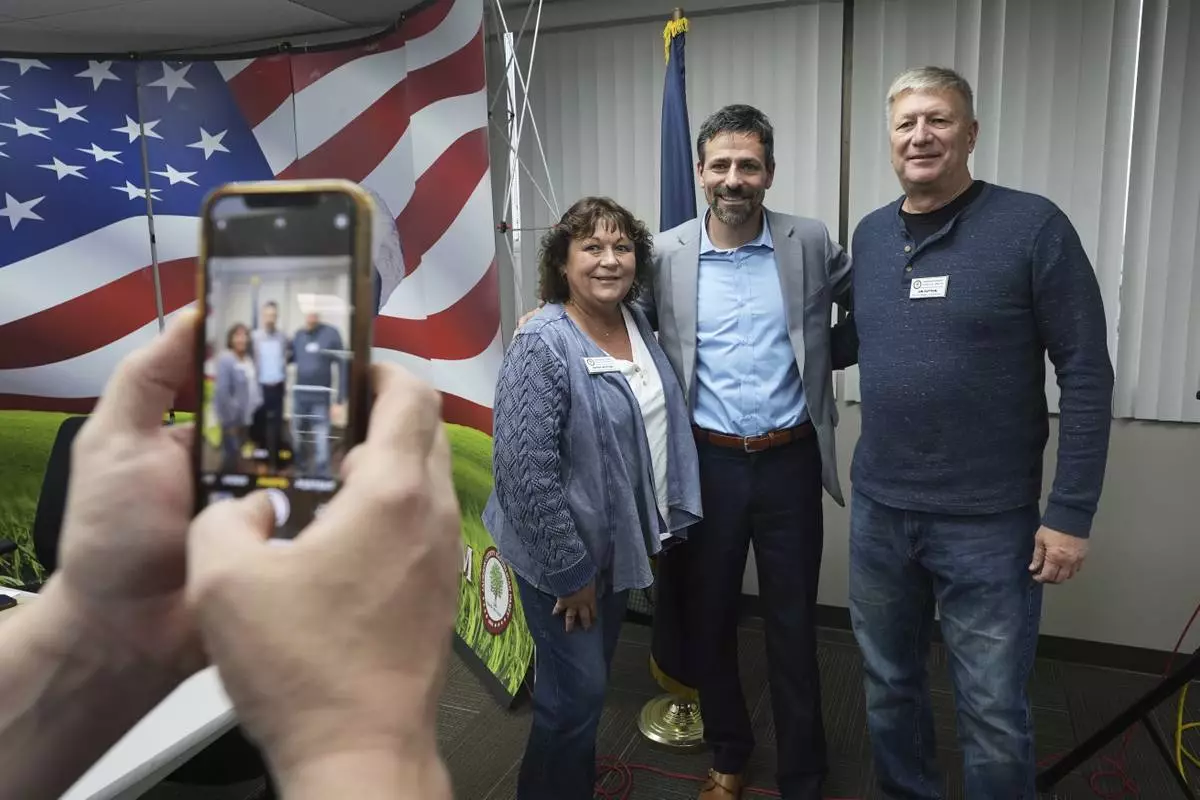
Ryan Kelley, center, poses for a photo after his talk at the Jackson County Republican headquarters, Thursday, April 10, 2025, in Jackson, Mich. (AP Photo/Paul Sancya)
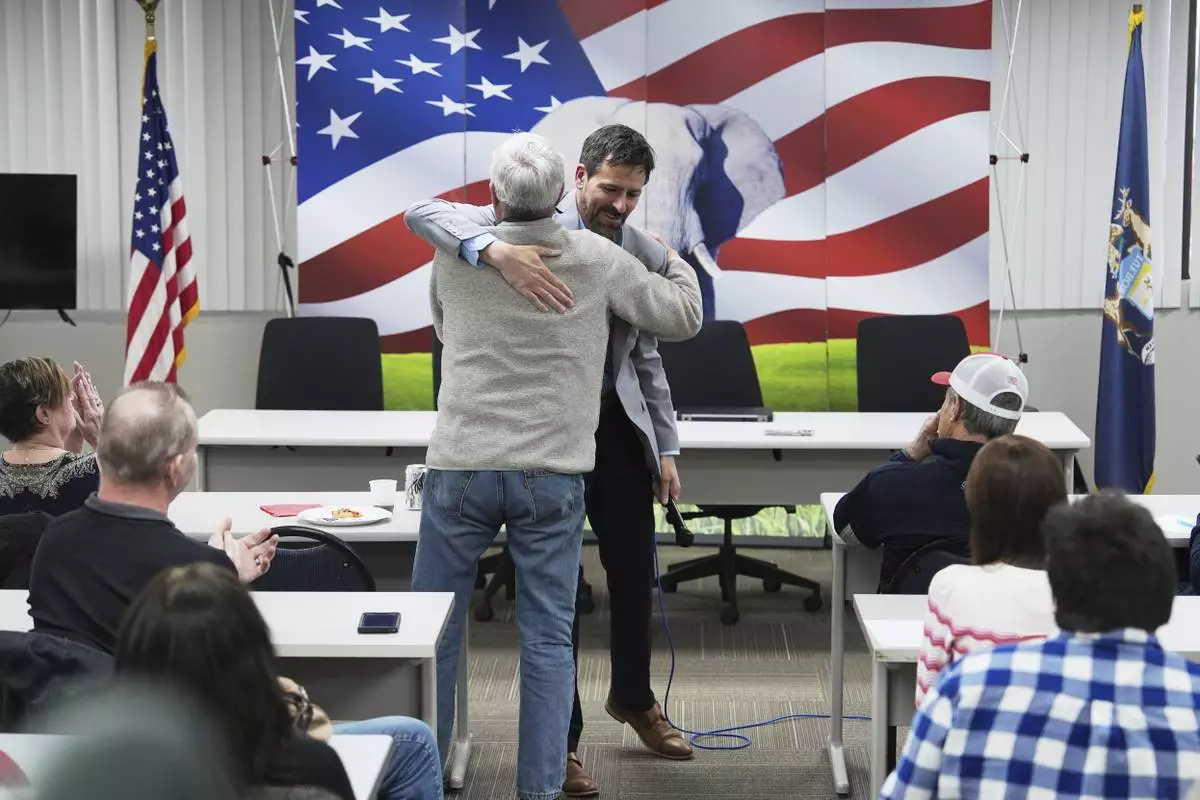
Ryan Kelley, right, hugs William "Hank" Choate during his talk at the Jackson County Republican headquarters Thursday, April 10, 2025, in Jackson, Mich. (AP Photo/Paul Sancya)
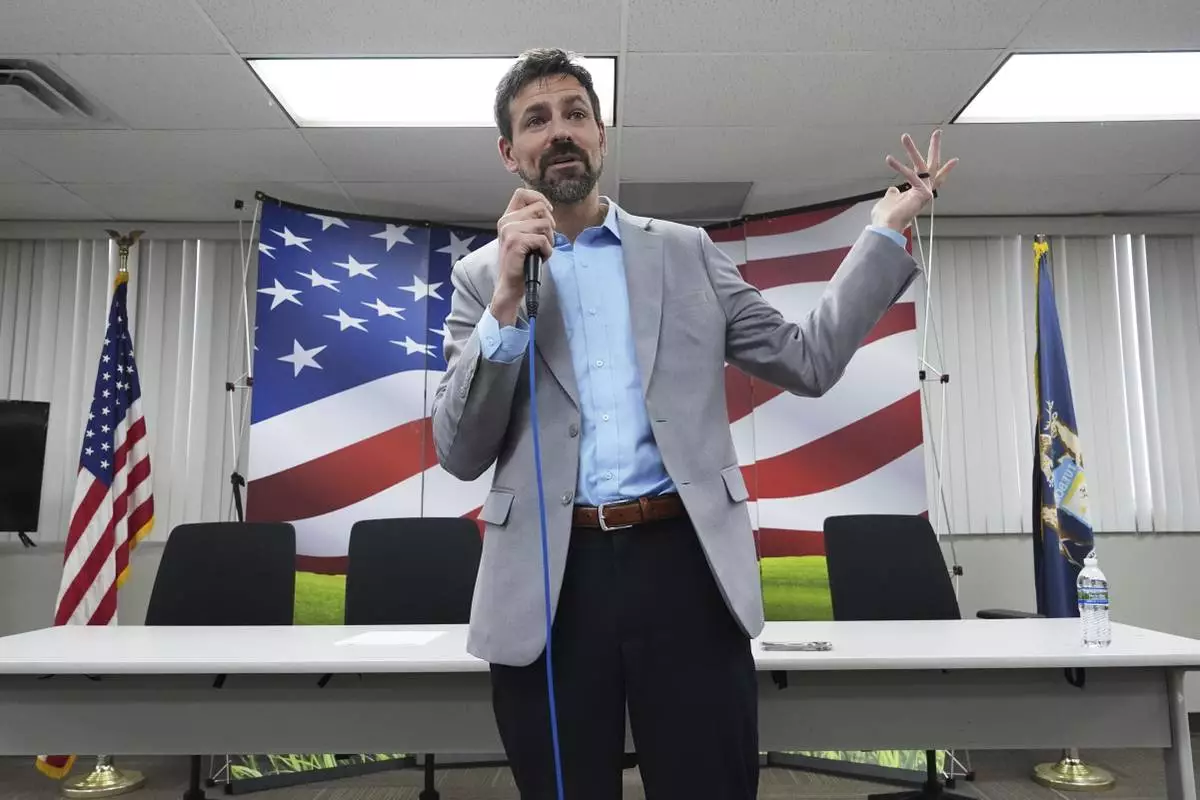
Ryan Kelley speaks at the Jackson County Republican headquarters, Thursday, April 10, 2025, in Jackson, Mich. (AP Photo/Paul Sancya)
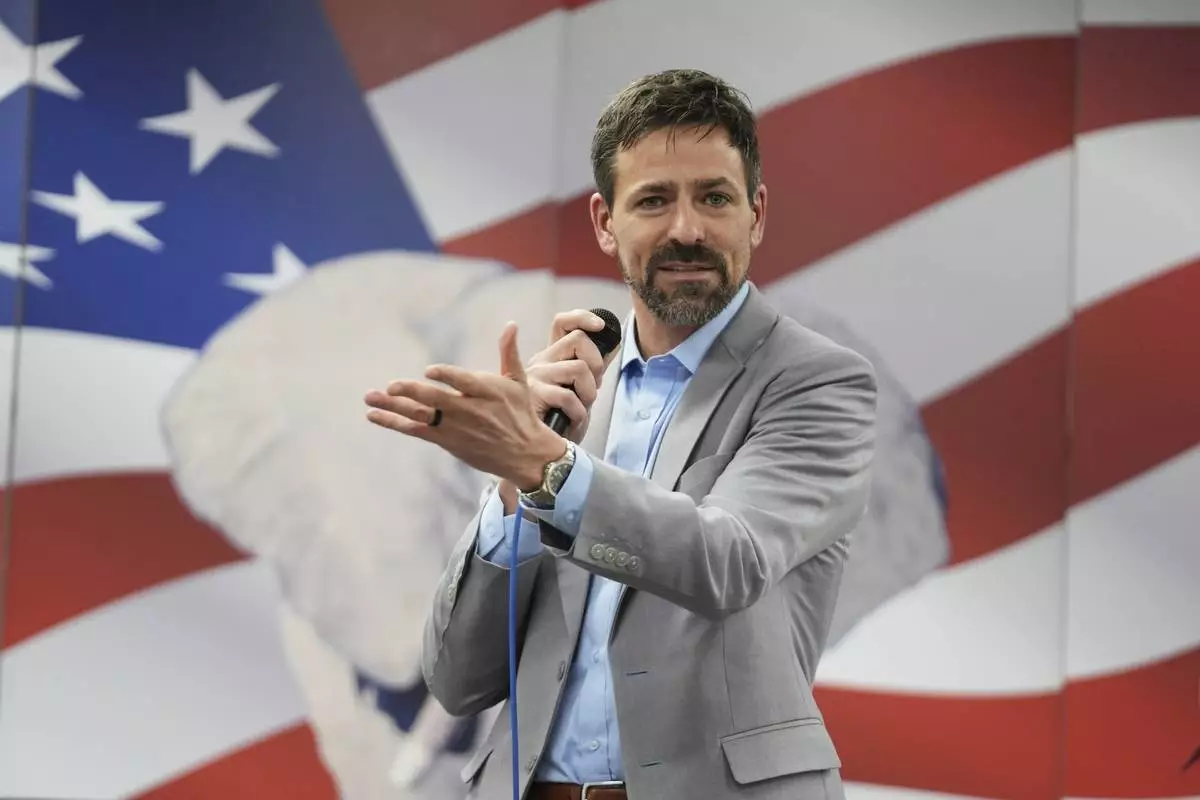
Ryan Kelley speaks at the Jackson County Republican headquarters Thursday, April 10, 2025, in Jackson, Mich. (AP Photo/Paul Sancya)

Ryan Kelley speaks at the Jackson County Republican headquarters, Thursday, April 10, 2025, in Jackson, Mich. (AP Photo/Paul Sancya)
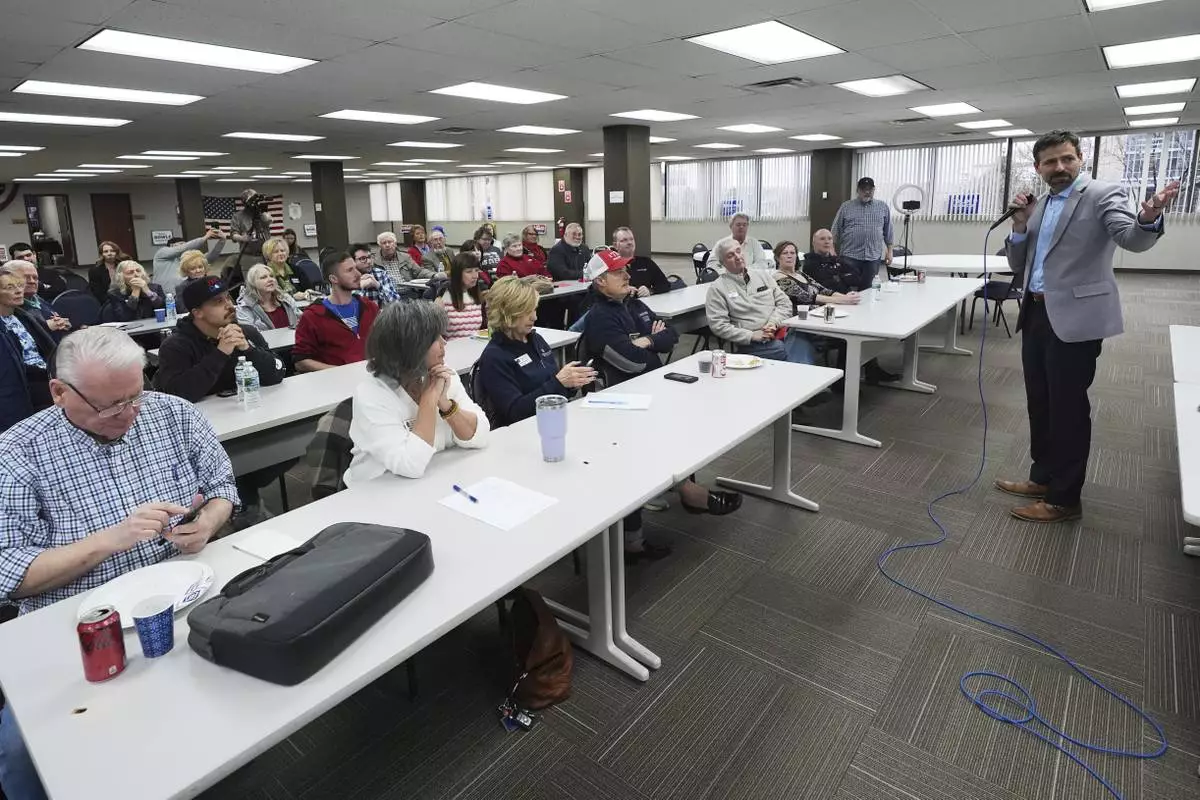
Ryan Kelley, right, speaks at the Jackson County Republican headquarters, Thursday, April 10, 2025, in Jackson, Mich. (AP Photo/Paul Sancya)

Ryan Kelley, left, talks with William "Hank" Choate before speaking at the Jackson County Republican headquarters Thursday, April 10, 2025, in Jackson, Mich. (AP Photo/Paul Sancya)
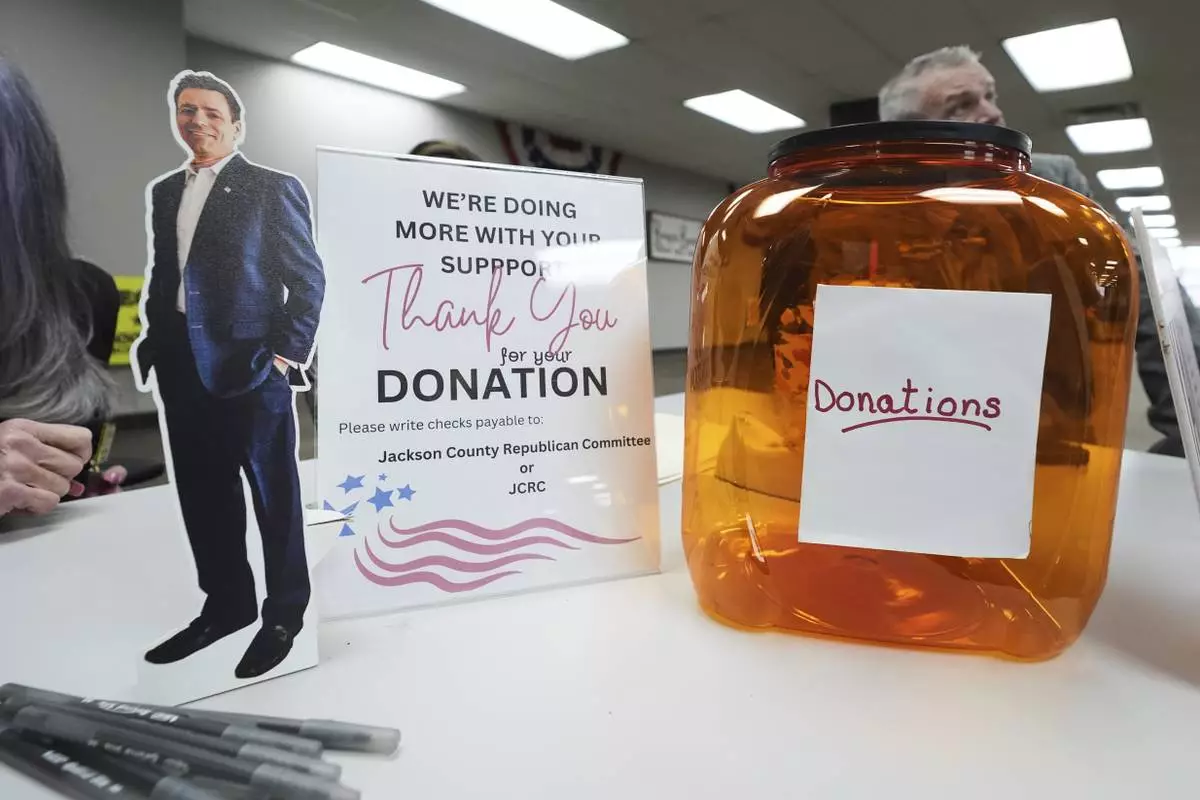
A small cutout of Ryan Kelley sits on the registration table before his talk at the Jackson County Republican headquarters, Thursday, April 10, 2025, in Jackson, Mich. (AP Photo/Paul Sancya)
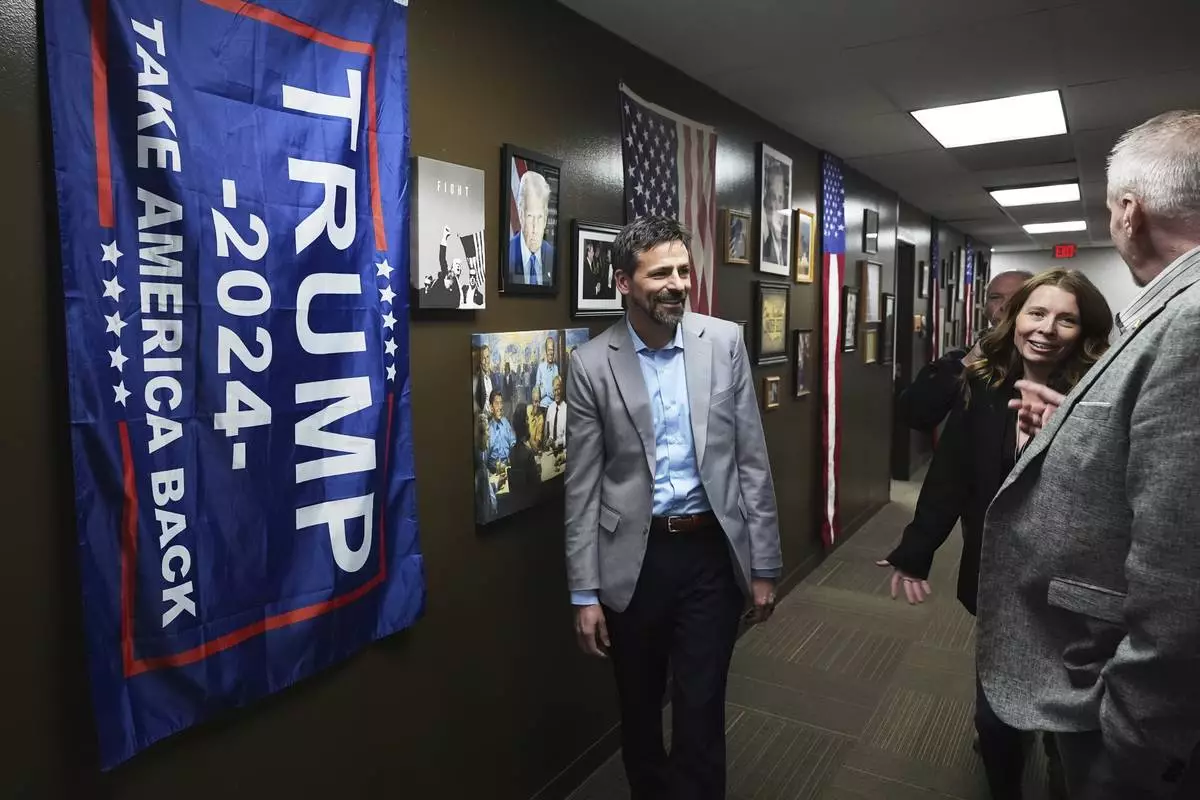
Ryan Kelley, left, arrives before his talk at the Jackson County Republican headquarters, Thursday, April 10, 2025, in Jackson, Mich. (AP Photo/Paul Sancya)
ANTALYA, Turkey (AP) — NATO foreign ministers on Thursday debated an American demand to massively ramp up defense investment to 5% of gross domestic product over the next seven years, as the U.S. focuses on security challenges outside of Europe.
At talks in Antalya, Turkey, NATO Secretary-General Mark Rutte said that more investment and military equipment are needed to deal with the threat posed by Russia and terrorism, but also by China which has become the focus of U.S. concern.
“When it comes to the core defense spending, we need to do much, much more,” Rutte told reporters. He underlined that once the war in Ukraine is over, Russia could reconstitute its armed forces within three to five years.
Secretary of State Marco Rubio underlined that “the alliance is only as strong as its weakest link.” He insisted that the U.S. investment demand is about “spending money on the capabilities that are needed for the threats of the 21st century.”
The debate on defense spending is heating up ahead of a summit of U.S. President Donald Trump and his NATO counterparts in the Netherlands on June 24-25. It's a high-level gathering that will set the course for future European security, including that of Ukraine.
In 2023, as Russia’s full-scale war on Ukraine entered its second year, NATO leaders agreed to spend at least 2% of GDP on national defense budgets. So far, 22 of the 32 member countries have done so.
The new spending plan under consideration is for all allies to aim for 3.5% of GDP on their defense budgets by 2032, plus an extra 1.5% on potentially defense-related things like infrastructure — roads, bridges, airports and seaports.
While the two figures add up to 5%, factoring in infrastructure and cybersecurity would change the basis on which NATO traditionally calculates defense spending. The seven-year time frame is also short by the alliance’s usual standards.
Rutte refused to confirm the numbers under consideration, but he acknowledged the importance of including infrastructure in the equation, “for example to make sure that bridges, yes, are there for you and me to drive our cars but also if necessary to make sure that the bridge will hold a tank. So all these expenditures have to be taken into account.”
But he didn't signal any progress on narrowing the numbers down after the meeting, which came as Ukrainian President Volodymyr Zelenskyy waited, apparently in vain, in the Turkish capital Ankara for Russian President President Vladimir to hold face-to-face talks on ending their 3-year-old war.
It’s difficult to see how many members would reach a new 3.5% goal. Belgium, Canada, Croatia, Italy, Luxembourg, Montenegro, Portugal, Slovenia and Spain are not even spending 2% yet, although Spain does expect to reach that goal in 2025, a year past the deadline.
The U.S. demand would require investment at an unprecedented scale, but Trump has cast doubt over whether the U.S. would defend allies that spend too little, and this remains an incentive to do more, even as European allies realize that they must match the threat posed by Russia.
Europe-wide, industry leaders and experts have pointed out challenges the continent must overcome to be a truly self-sufficient military power, chiefly its decades-long reliance on the U.S. as well as its fragmented defense industry.
“There is a lot at stake for us,” Lithuanian Foreign Minister Kęstutis Budrys said. He urged his NATO partners to meet the investment goals faster than the 2032 target "because we see the tempo and the speed, how Russia generates its forces now as we speak.”
British Foreign Secretary David Lammy said his country should reach 2.5% by 2027, and then 3% by the next U.K. elections planned for 2029.
“It’s hugely important that we recommit to Europe’s defense and that we step up alongside our U.S. partners in this challenging geopolitical moment where there are so many precious across the world, and particularly in the Indo-Pacific,” he said.
As an organization, NATO plays no direct security role in Asia, and it remains unclear what demands the Trump administration might make of the allies as it turns its attention to China. The last NATO security operation outside the Euro-Atlantic area, its 18-year stay in Afghanistan, ended in chaos.
Asked after the meeting about whether the next summit communique will underline that still Russia poses the greatest threat to all NATO allies, Rutte refused to be drawn: “We will see what is the best way to play that,” he said.
Question marks also hang over the way the leaders will frame NATO's commitment to Ukraine. The war there has dominated recent summits, with envoys struggling to find language that would further anchor the country to the alliance without actually allowing it to join.
But this year, the United States has taken Ukraine's membership off the table. Trump has shown impatience with Zelenskyy and remains unclear whether he will be invited to the meeting in The Hague.
Cook reported from Brussels, and Fraser from Ankara, Turkey.
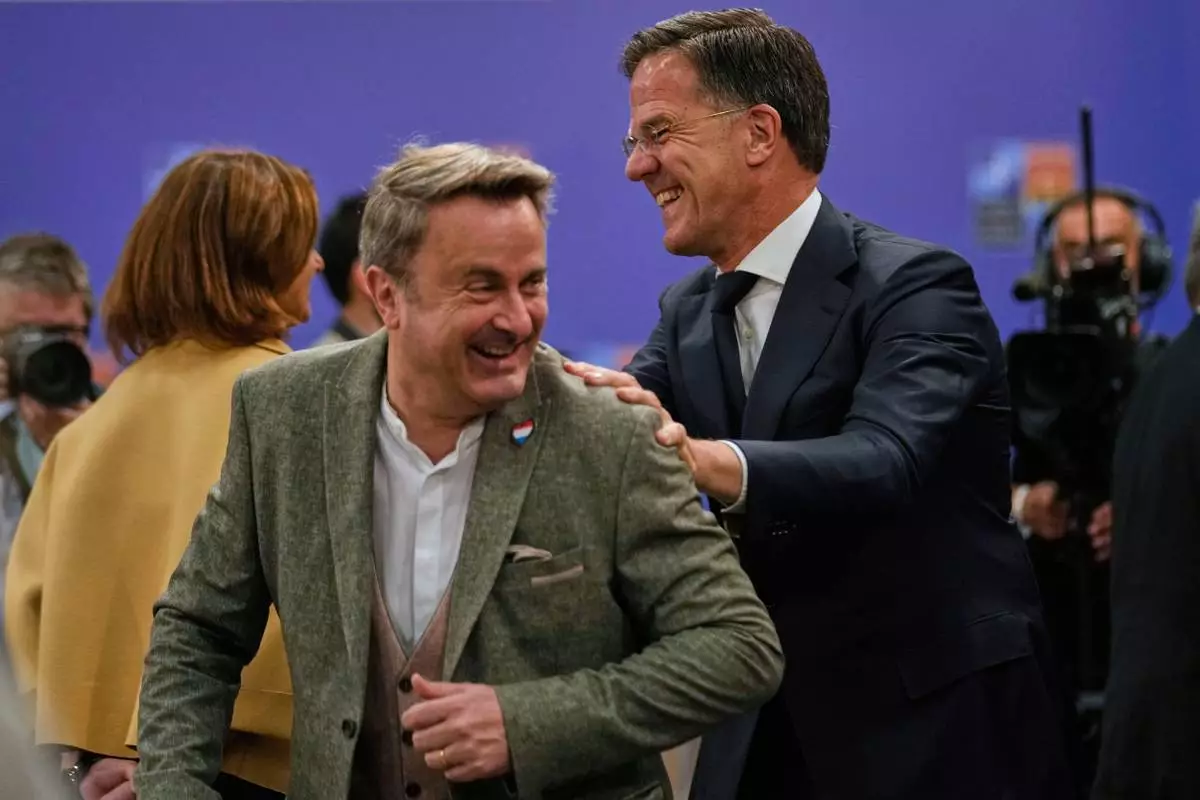
NATO Secretary-General Mark Rutte, right, talks to Luxembourg's Foreign Minister Xavier Bettel as they arrive for a group photo during a NATO's informal meeting of foreign ministers in Antalya, southern Turkey, Thursday, May 15, 2025. (AP Photo/Khalil Hamra)
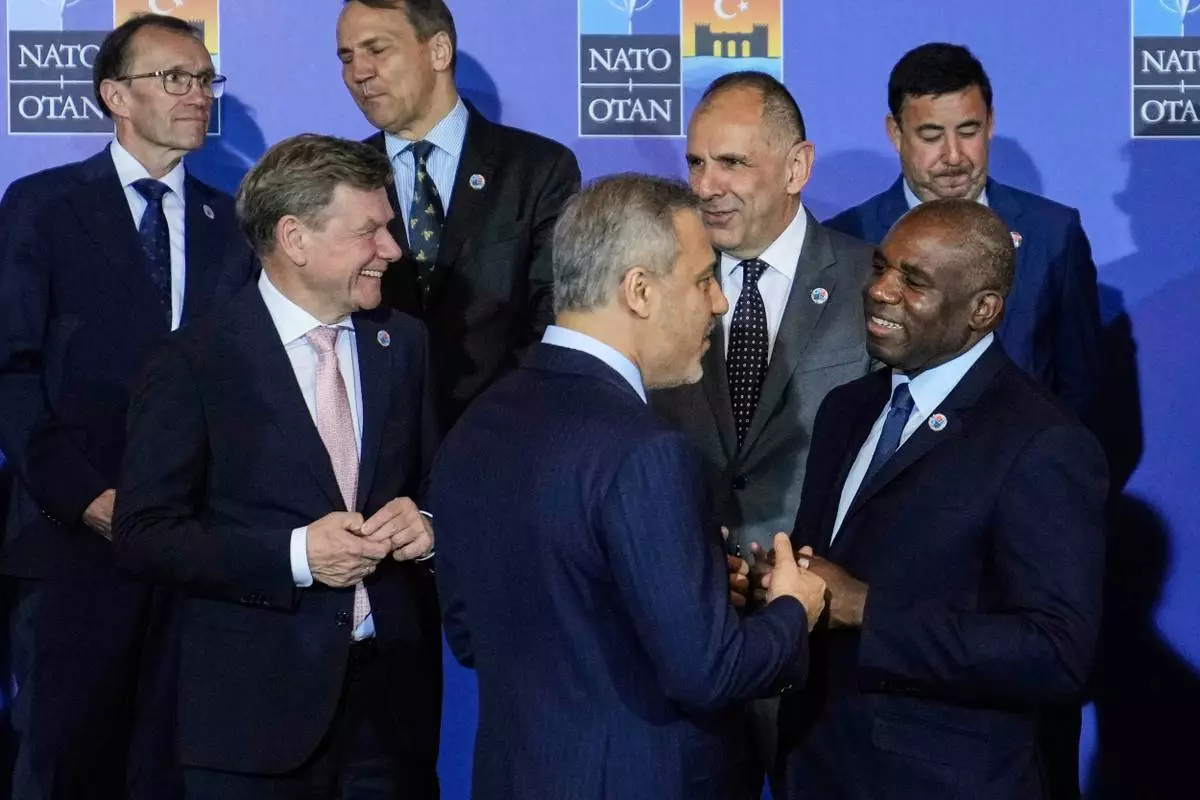
Turkey's Foreign Minister Hakan Fidan, center, talks to British Foreign Secretary David Lammy, right, next to Germany's Foreign Minister Johann Wadephul, left, as they wait for a group photo during a NATO's informal meeting of foreign ministers in Antalya, southern Turkey, Thursday, May 15, 2025. (AP Photo/Khalil Hamra)
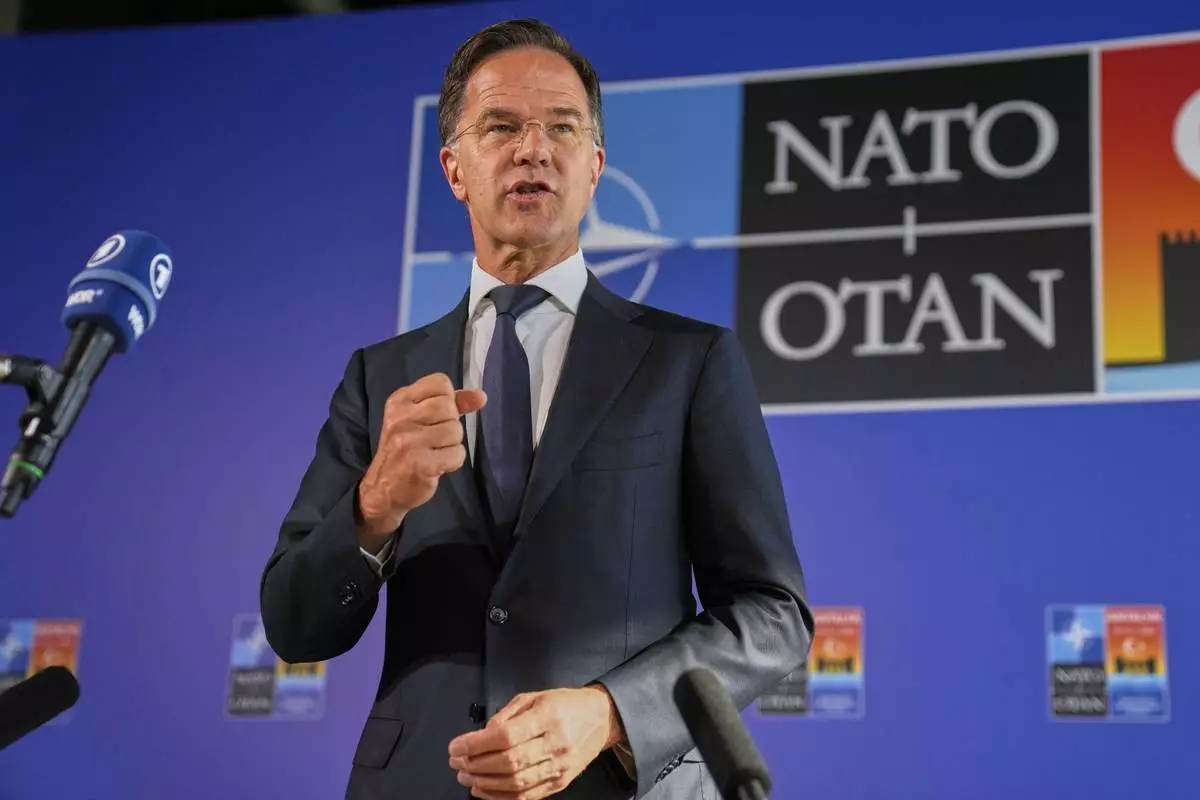
NATO Secretary General Mark Rutte talks to journalists as he arrives for a NATO's informal meeting of foreign ministers in Antalya, southern Turkey, Thursday, May 15, 2025. (AP Photo/Khalil Hamra)
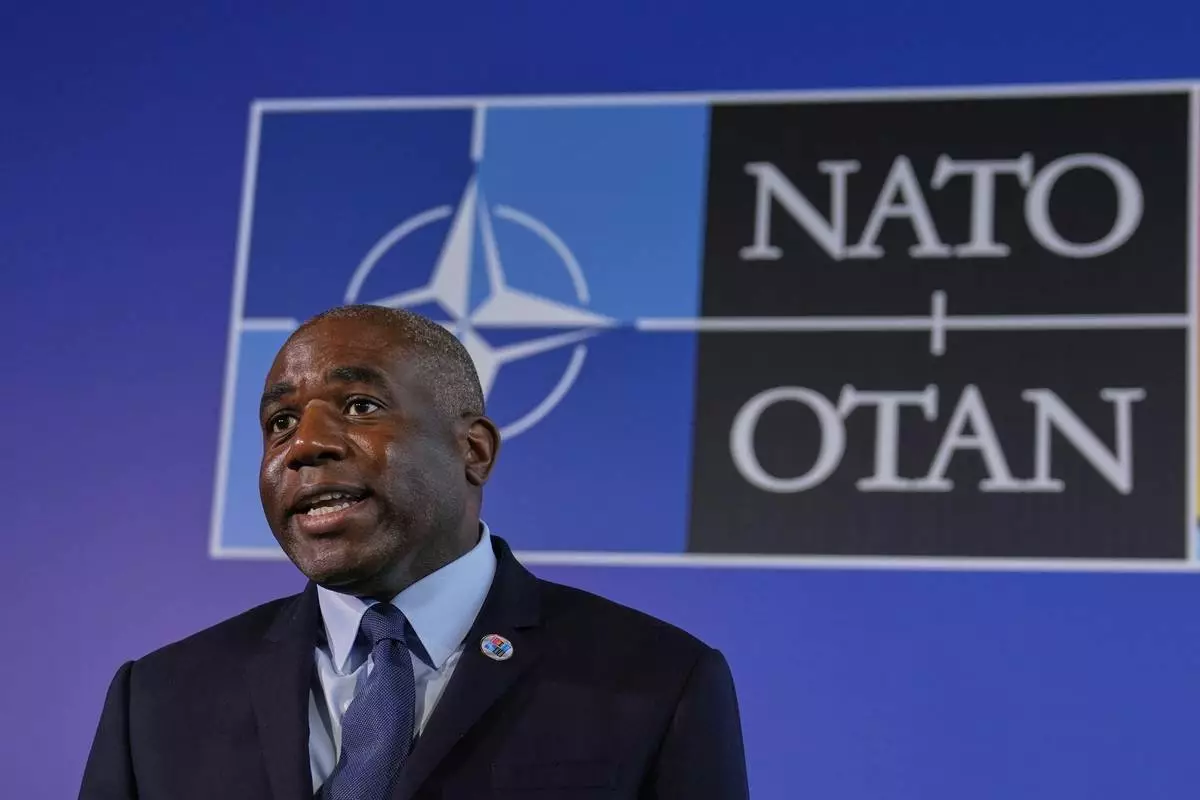
British Foreign Secretary David Lammy talks to journalists as he arrives for a NATO's informal meeting of foreign ministers in Antalya, southern Turkey, Thursday, May 15, 2025. (AP Photo/Khalil Hamra)
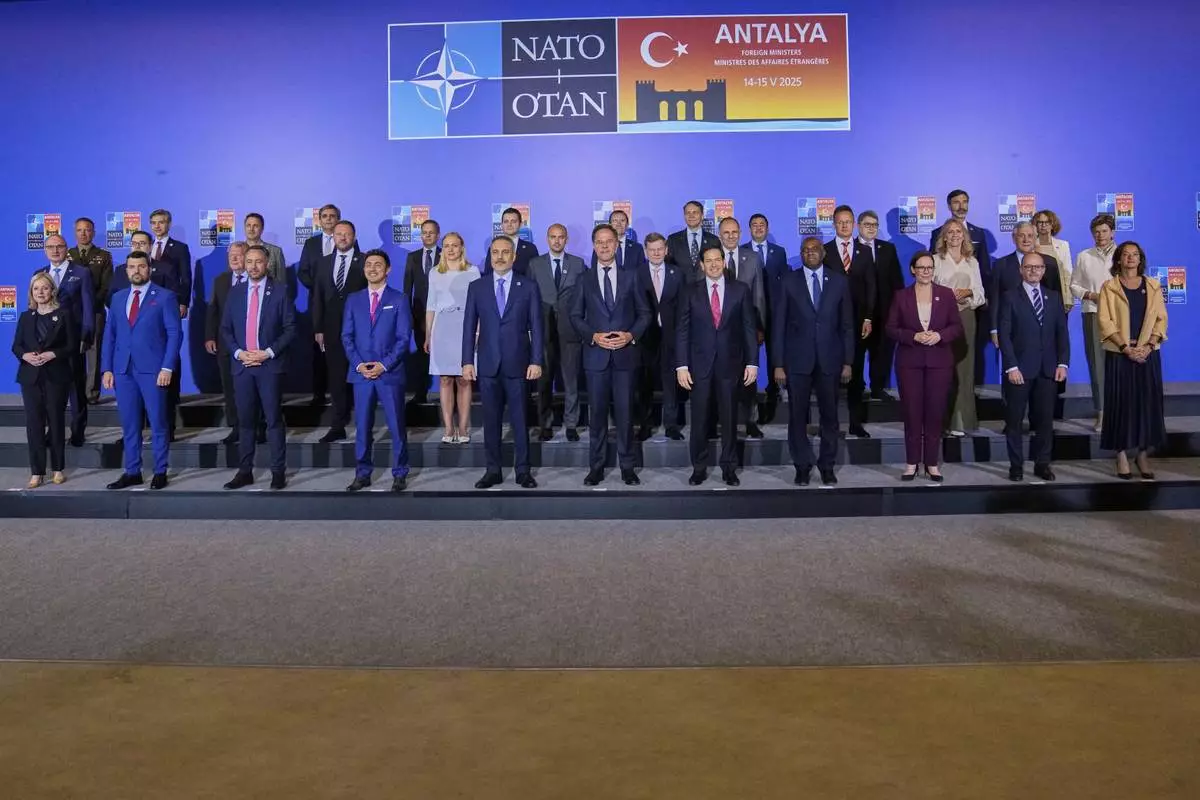
NATO foreign ministers pose for a group photo during their informal meeting in Antalya, southern Turkey, Thursday, May 15, 2025. (AP Photo/Khalil Hamra)
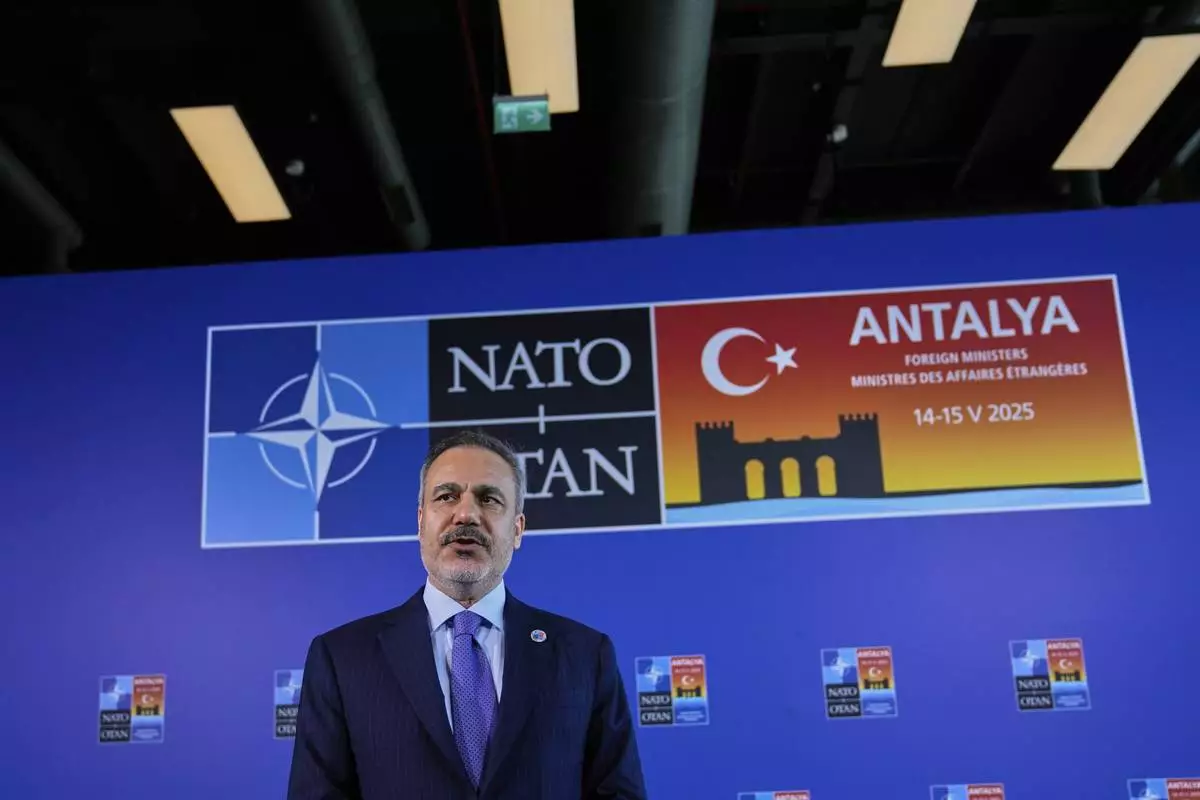
Turkey's Foreign Minister Hakan Fidan talks to journalists as he arrives for a NATO's informal meeting of foreign ministers in Antalya, southern Turkey, Thursday, May 15, 2025. (AP Photo/Khalil Hamra)
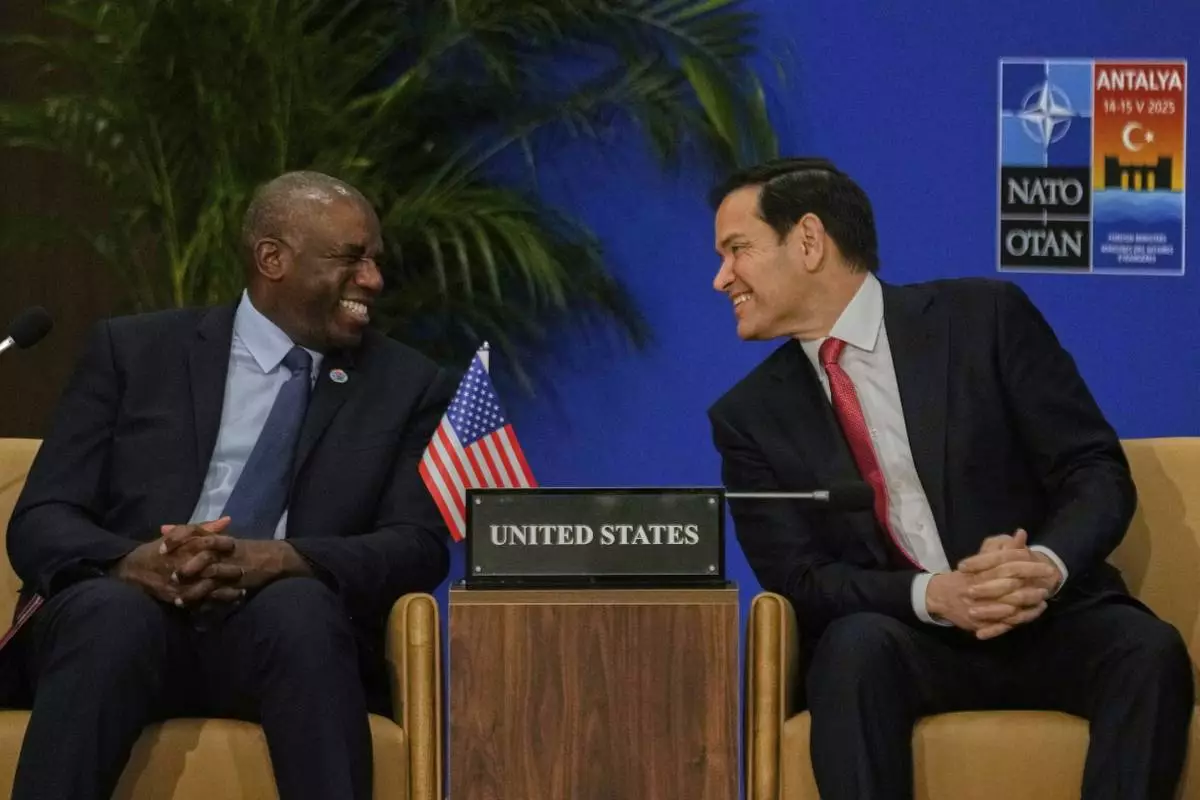
United States Secretary of State Marco Rubio, right, talks to British Foreign Secretary David Lammy during an informal meeting of NATO's foreign ministers in Antalya, southern Turkey, Thursday, May 15, 2025. (AP Photo/Khalil Hamra)
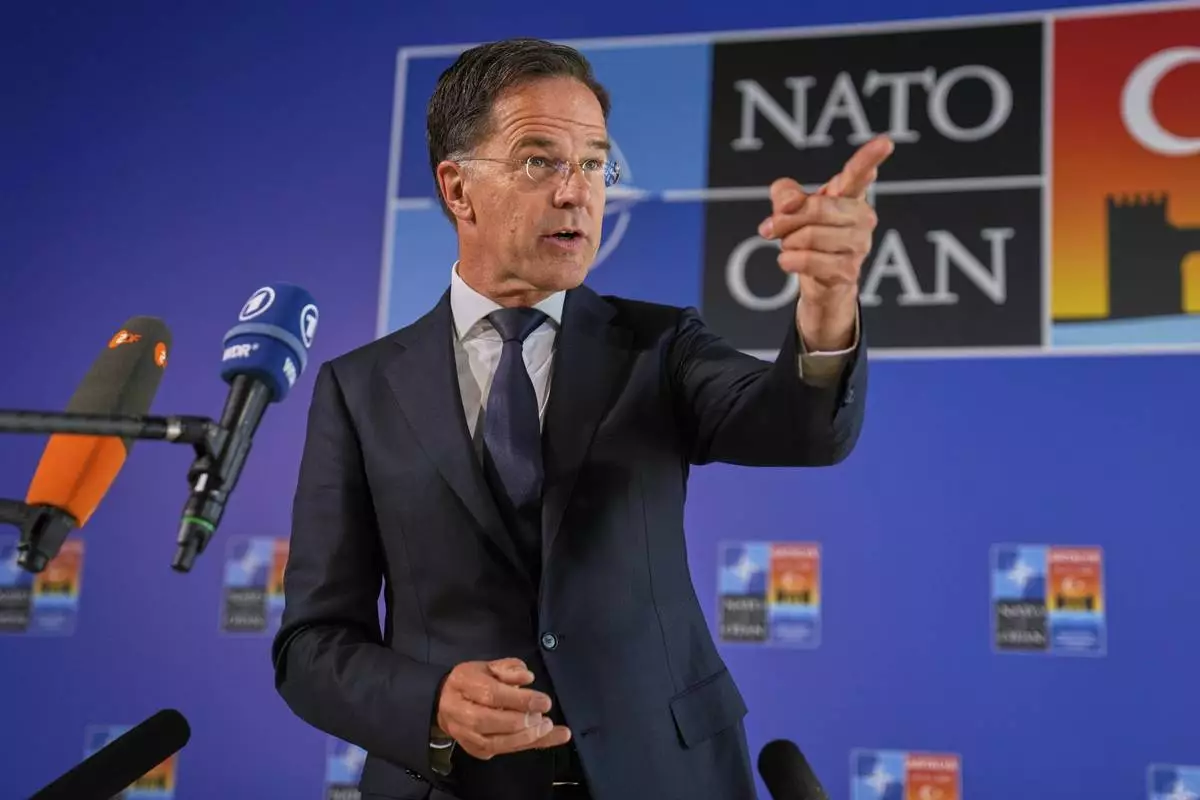
NATO Secretary General Mark Rutte talks to journalists as he arrives for NATO's informal meeting of foreign ministers in Antalya, southern Turkey, Thursday, May 15, 2025. (AP Photo/Khalil Hamra)
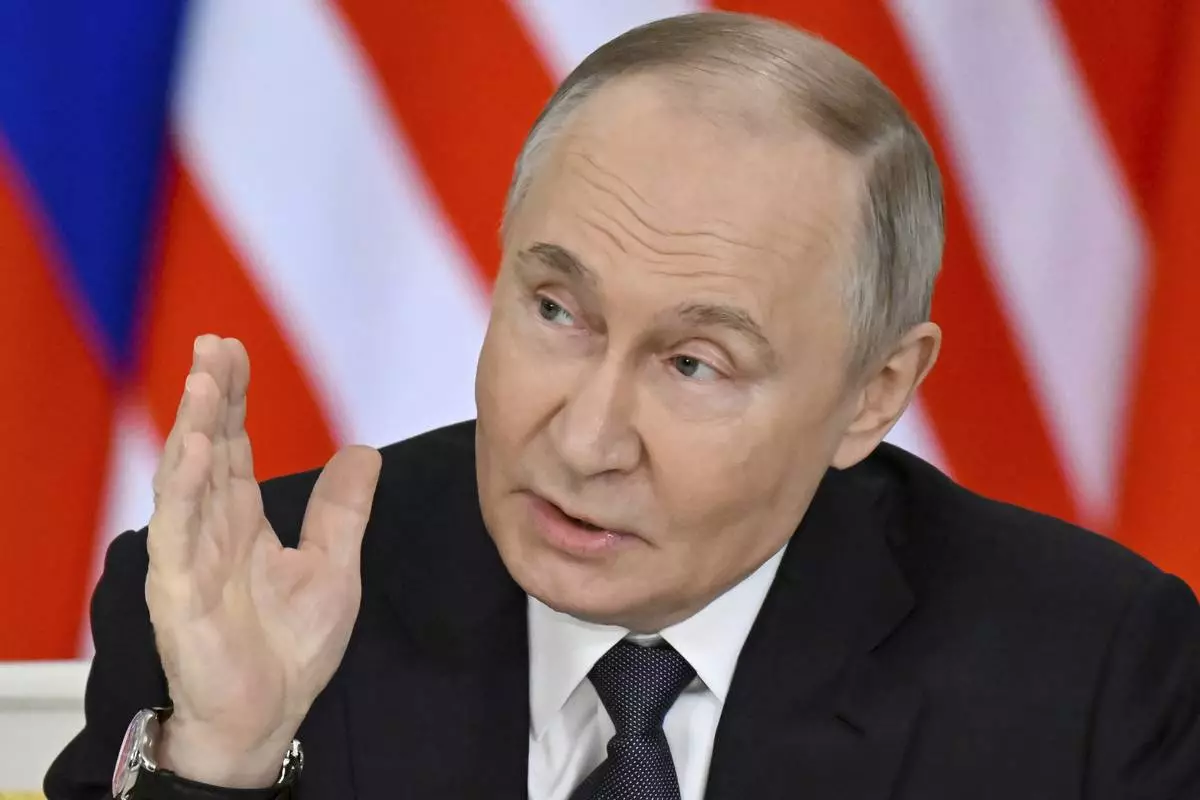
Russian President Vladimir Putin speaks during a joint press statement with Malaysian Prime Minister Anwar Ibrahim at the Kremlin in Moscow, Russia, Wednesday, May 14, 2025. (Alexander Nemenov/Pool Photo via AP)
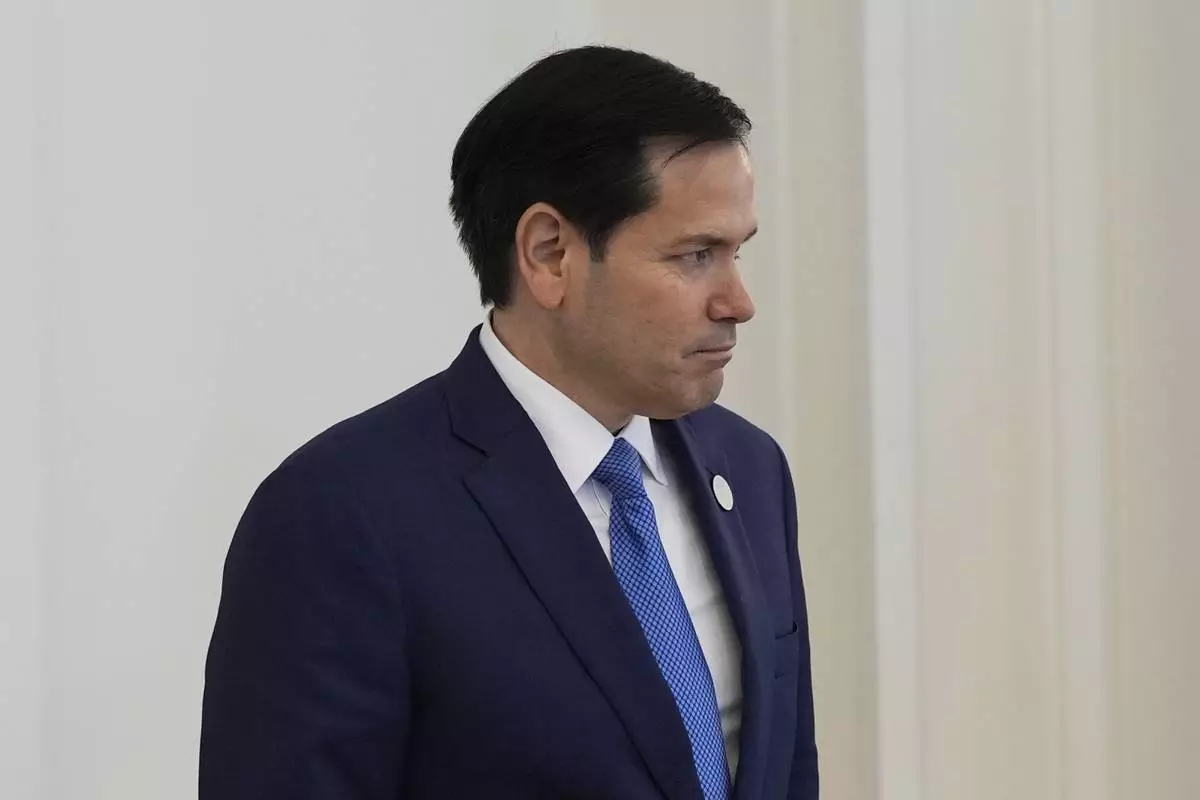
Secretary of State Marco Rubio departs a lunch between President Donald Trump and Qatar's Emir Sheikh Tamim bin Hamad Al Thani at the Amiri Diwan in Doha, Qatar, Wednesday, May 14, 2025. (AP Photo/Alex Brandon)












